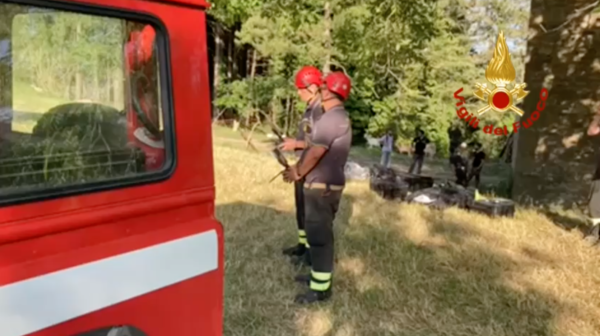FLORENCE, ITALY – The story of the two-year-old boy lost in the woods near his home in the Mugello mountains, outside Florence, and found two days later by rescuers is a story with a happy ending, but it is a story that has also opened a debate on where the law should be pushed to legislate on parental control over children.
A 21-month-old boy who went missing on Tuesday June 22 in the small town of Palazzuolo sul Senio (Tuscany) has been found alive two days later. Nicola Tanturli was found around three kilometres from home in good condition.
The toddler was found thanks to RAI journalist Giuseppe Di Tommaso, who heard moans and other noises coming from a deep gorge by a road while reporting on the story. The boy, who had disappeared from his home was taken to Florence’s Meyer hospital with his mother via helicopter. The 21-month-old boy was discharged from Florence’s Meyer children’s hospital on Thursday June 24.
His father Leonardo and his mother Giuseppina noticed their son’s disappearance at midnight, when they went out to feed the animals on their farm, but they only gave the alarm in the morning after looking for him all night. The area where the cottage stands is isolated and can only be reached via a dirt road. It is surrounded by dense woods and in the absence of mobile phone coverage, communications are mainly via radio.
“An entire community has climbed up to those woods, with all our forces that we have at our disposal to look for the baby,” said the mayor of the town of a thousand inhabitants of Mugello, Gian Piero Moschetti. After two days of searching the baby was finally found alive.
The good news, however, has opened a controversy. At first it seemed that the parents had been accused of neglect of a minor, then the judiciary never formalized the accusation. On social media, many messages against parental behaviour have appeared, while others have recalled the large number of certificates to be filled out for parents with school or sports, when instead it is allowed to leave alone a child in a house in the woods. Others have defended the parents’ behavior, saying that no one has the power to interfere with the parents’ educational style, even when this means living on an isolated farm in the woods.

